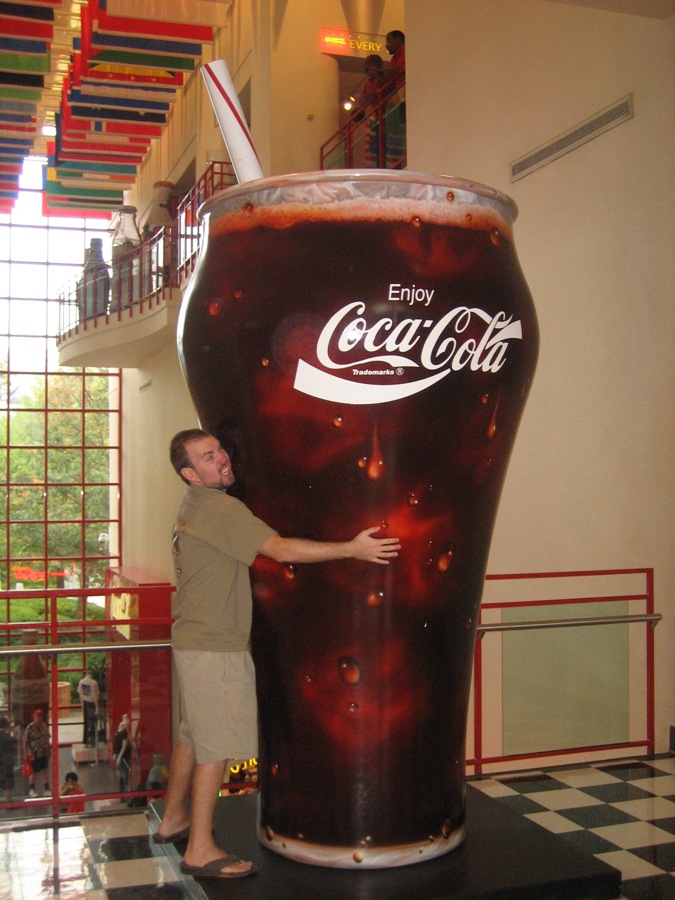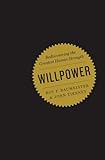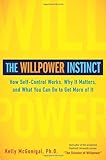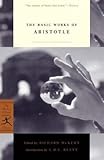 The toughest part of quitting my soda habit was the extreme desire internal desire to drink it. It often feels as if my brain is hard-wired and will never stop craving the yummy goodness that it sees as a soda. There are two situations that almost always give rise to these cravings:
The toughest part of quitting my soda habit was the extreme desire internal desire to drink it. It often feels as if my brain is hard-wired and will never stop craving the yummy goodness that it sees as a soda. There are two situations that almost always give rise to these cravings:
1. Eating a meal
2. Doing any type of intellectual work, especially web design or writing
The desire for an increase in calories caused by intellectual thinking has actually been well documented. On top of this simple desire, I find that the caffeine helps me to focus and be more productive – and yes, I’m drinking a cup of coffee as I write this very sentence. Outwardly, that added up to a lot to battle: the desire, the coldness, the thirstiness, and the lack of focus.
This added up to a major battle for my willpower.
For me, Aristotle’s discussion on will remains one of the most interesting. In his discussion on self-mastery, he points out that one of the differences between man and animal is that man can make a rational decision not to do something that his body, or baser instincts desire to do. The problem is that although we often make these decisions to act in ways that will benefit us, sometimes we fail to act on those decisions – Aristotle called this akrasia, or weakness of the will. This means that we can fail to do something that we know is in our best interest. Even though I know soda is bad for me, and have intellectually decided to stop drinking it, I might still have one in a moment of weakness.
In contrast, Plato argues that a person can never take an action that they truly believe is bad – in other words, if I drink the soda, I must actually believe that this is good for me. And this contrast applies to the realm of ethics as well – a person would never intentionally act in a way he thought was wrong – if he takes an action he must think it is right.
For me, Aristotle’s side of the debate makes a great deal more sense and aligns more closely with my experience of reality. I know soda is bad for me, I have chosen to stop drinking it, but my willpower to not drink any certainly wavers at times.
In the book, Willpower: Rediscovering the Greatest Human Strength, the authors suggest that our will is a lot like a muscle:
It’s like a muscle that can be strengthened with use, but it also gets fatigued with use… Just putting food where you can see it next to you depletes your willpower. Whereas putting it away in a drawer or putting it across the room makes it easier for you because you’re not actively resisting the temptation… You only have a finite amount [of willpower] as you go through the day, so you should be careful to conserve it and try to save it for the emergencies. – Willpower
The authors clearly discuss the idea that this virtue can be strengthened, yet almost everything I’ve read that references this focuses instead on avoiding situations where your willpower is tested so you can save it up for when you cannot but help a confrontation.
I believe that the more interesting question is to look further into how we can continue to strengthen this virtue.
Yes, I could run around making sure I never go near the coolers in a gas station and see the sodas, or throw out all the Coke memorabilia I have collected over the years so I’m not reminded of it, but is that really self-mastery? What’s important to me is building up that will power. Yes, perhaps I will slip, but we often can learn from these moments of akrasia. What caused it? How can I prevent it again? This is how we will truly build willpower – not hiding from any situation that tests it.
For Aristotle, the person of practical wisdom – which is a requirement for living the good life – will not have akrasia, this weakness of the will. This means continually working to habituate our willpower – our self-mastery. And habituation is the primary, perhaps even only way to achieve virtue according to Aristotle. And achieving virtue is how we ultimately achieve the good life.
After four months, and also quitting sweet tea, my willpower is much stronger, and even my cravings for soda are much more rare.
So start flexing your willpower muscle today and make it strong through habituation. Take another step toward the good life. What will you do to help strengthen your self-mastery?
For further reading:



Well done JJ. Hopefully I can convince myself to go swim some laps now.